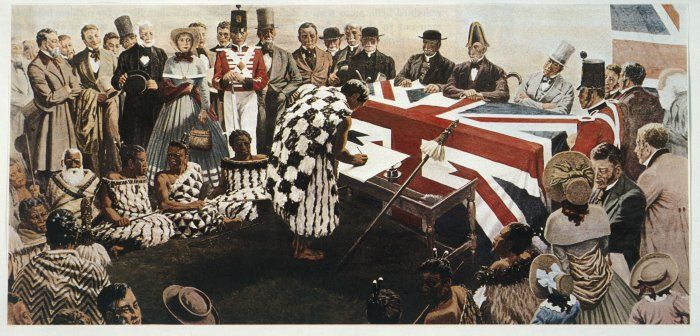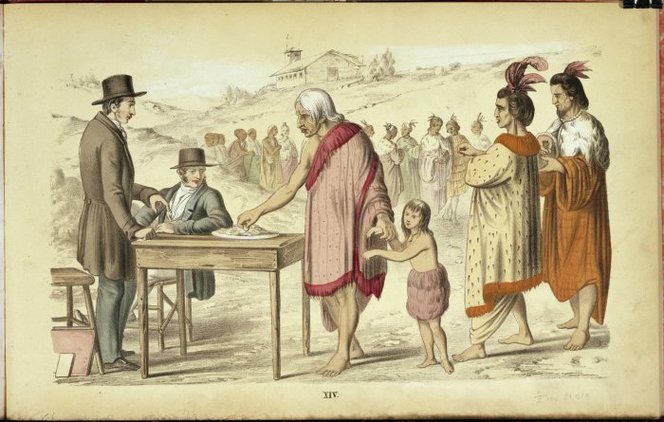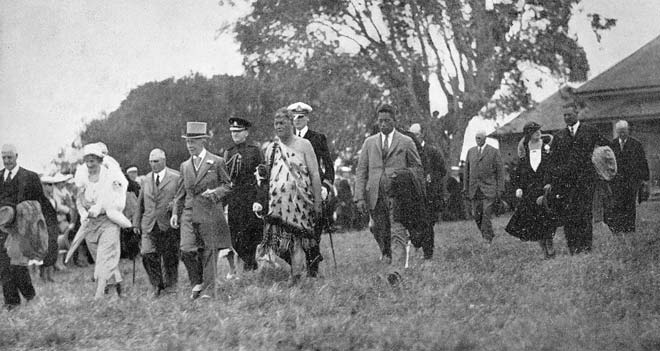New Zealand History - The Treaty of Waitangi
What is the Treaty of Waitangi?
The Treaty of Waitangi is the founding document of New Zealand. It is an agreement entered into by representatives of the Crown and of Māori iwi (tribes) and hapū (sub-tribes). It is named after the place in the Bay of Islands where the Treaty was first signed, on 6 February 1840. The Treaty was not drafted as a constitution or a statute. It was a broad statement of principles upon which the British officials and Māori chiefs made a political compact or covenant to found a nation state and build a government in New Zealand to deal with pressing new circumstances. Like many treaties, it is an exchange of promises between the parties to it.

What does the Treaty say?
The Treaty of Waitangi is the founding document of New Zealand. It is an agreement entered into by representatives of the Crown and of Māori iwi (tribes) and hapū (sub-tribes). It is named after the place in the Bay of Islands where the Treaty was first signed, on 6 February 1840. The Treaty was not drafted as a constitution or a statute. It was a broad statement of principles upon which the British officials and Māori chiefs made a political compact or covenant to found a nation state and build a government in New Zealand to deal with pressing new circumstances. Like many treaties, it is an exchange of promises between the parties to it.

Why are there Treaty of Waitangi claims?
Since 1840 governments have taken actions that have resulted in the alienation of Māori land, waters and other resources from their owners, generally without proper consent or compensation. Māori have tried to have their grievances addressed, and some early governments attempted to settle their claims. Only some of those claims were addressed, and these attempts are now considered to have been inadequate. Recent governments have recognised that the way some land transactions took place was unjust and left a strong sense of grievance with the original owners and their descendants. In 1975 the Waitangi Tribunal was established to consider claims by Māori against the Crown regarding breaches of principles of the Treaty and to make recommendations to government to remove the prejudice and provide recompense. Since 1985 the tribunal has been able to consider Crown acts and omissions dating back to 1840. This has provided Māori with an important means to have their grievances against the actions of past governments investigated.
